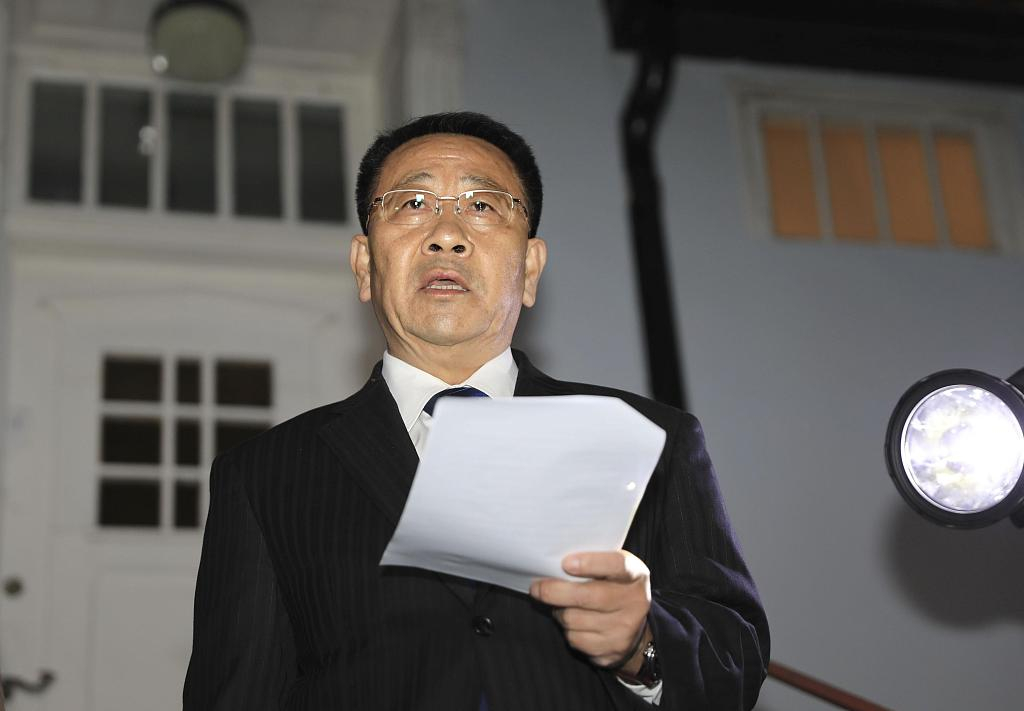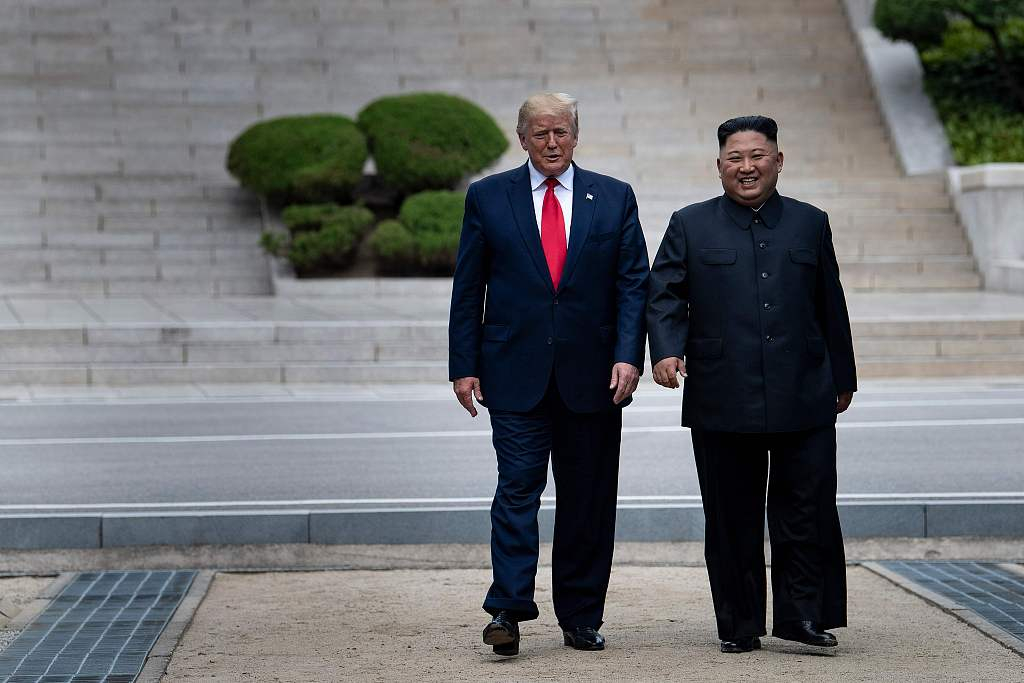Editor's note: Zhao Yuanzhen is an opinion editor with CGTN Digital. The article reflects the author's opinion, and not necessarily the views of CGTN.
Working-level denuclearization talks between the Democratic People's Republic of Korea (DPRK) and the United States have broken down, again. But it seems that U.S. President Trump did not care much about it as he faces a domestic political crisis that may seriously influence the 2020 presidential election.
Kim Myong Gil, DPRK's chief nuclear negotiator, has blamed "U.S. inflexibility" for the break down of an eight-hour-long negotiation in Stockholm, the first working-level talks after both sides agreed to resume deliberations in June. "The negotiations did not live up to our expectations and broke down," said Kim, adding "They have disappointed us greatly and dampened our enthusiasm for negotiations by bringing nothing to the negotiating table."

Kim Myong Gil, DPRK's chief nuclear negotiator, addresses a press conference at DPRK Embassy in Stockholm, October 5, 2019. /VCG Photo
Kim Myong Gil, DPRK's chief nuclear negotiator, addresses a press conference at DPRK Embassy in Stockholm, October 5, 2019. /VCG Photo
But the U.S. side has its own version of the story, with spokesperson Morgan Ortagus claiming that they "brought creative ideas and had good discussions" with the DPRK team. The U.S. has also accepted Sweden's invitation to return for more discussions with Pyongyang in two weeks.
The fact that the two sides are drawing different conclusions on whether the talks have failed or not reveals that there's still a long way to go before the negotiations can yield any fruitful results.
Explaining why the talks have failed, Cui Zhiying, director of the Korean Peninsula Research Center at Tongji University in Shanghai, said that both sides were reluctant to take the initiative to break the deadlock.
"Trump and Kim had a brief meeting in June at Panmunjom, the demilitarized zone between the two Koreas. They decided to resume denuclearization talks at the meeting on the site and wanted to have the first meeting two or three weeks later. Still, it took them three months to have the first working-level meeting."
Cui pointed out that the DPRK considered that they have already been making efforts to promote the denuclearization process, but such efforts have not been fully recognized by the U.S. side. In the meantime, the DPRK used to have high hopes on negotiations with the U.S., since Trump seemed to have a genuine interest in reaching a deal with the DPRK by engaging with Kim, in contrast to a tougher and colder attitude of his predecessors toward the DPRK.

U.S. President Donald Trump and DPRK leader Kim Jong Un walk in the Demilitarized Zone (DMZ) in Panmunjom, June 30, 2019. /VCG Photo
U.S. President Donald Trump and DPRK leader Kim Jong Un walk in the Demilitarized Zone (DMZ) in Panmunjom, June 30, 2019. /VCG Photo
So the DPRK has hoped that Trump can take the initiative to offer security guarantee and sanctions relief in return for DPRK's efforts in denuclearization. But the two sides have made little progress on the realization of these specific and tangible requirements, which have greatly disappointed the DPRK. The disagreement over DPRK's step-by-step denuclearization plan versus U.S.'s full denuclearization before sanctions relief offer continues to be a sticking point.
More importantly, Trump himself does not have the energy to work out a strategic plan on negotiations with the DPRK as he is swamped by political sandals and impeachment crisis back home. As the House moves quickly on pushing the impeachment process, Trump's priority is to come with defensive strategies rather than denuclearization plans. When expectations are high, failure tastes more bitter. It is not hard to understand DPRK's anger in this context.
Although there's little possibility that Trump will be impeached given there are more Republicans in the Senate, the inquiry itself could have important effects on swing states that could have a direct influence on the 2020 presidential election. Even if Trump can secure another term as president, he is bound to face a more divided America that could lead to more conflicts.
"So against this background, the U.S. side did not prepare to have a successful talk as it was more of an exploratory meeting for the U.S. to see if DRPK's attitude has changed or not," Cui observed, predicting that "Negotiations with the DRPK would not be high on the agenda for Trump in at least a year."
Is there still hope? Yes, according to Cui. If Trump wins the 2020 election, talks with the DPRK will continue to be an important part of his foreign policy as this could be his diplomatic legacy to be remembered. But again, right now Trump is in no mood to resume his friendship with Kim.
(If you want to contribute and have specific expertise, please contact us at opinions@cgtn.com.)